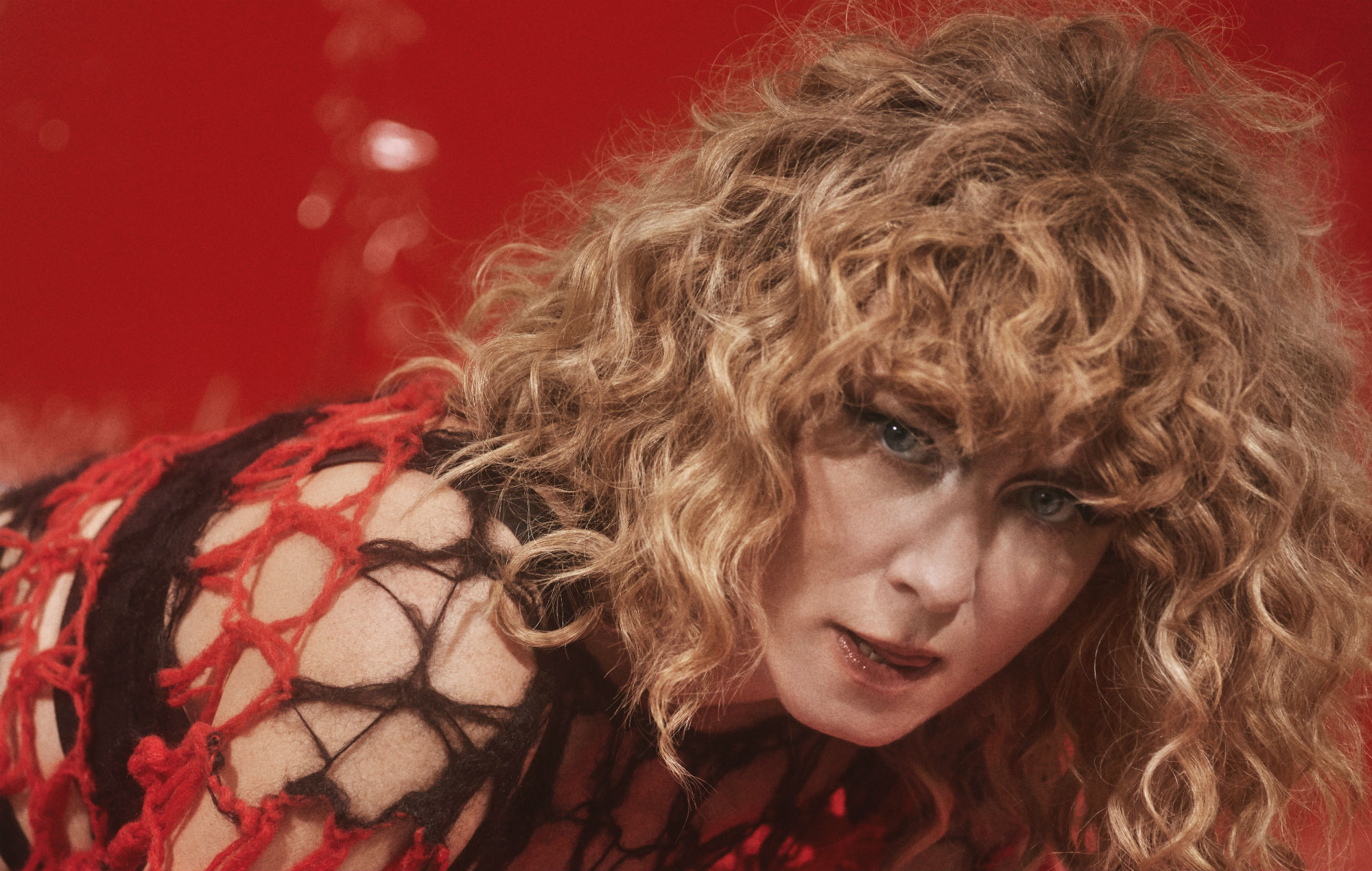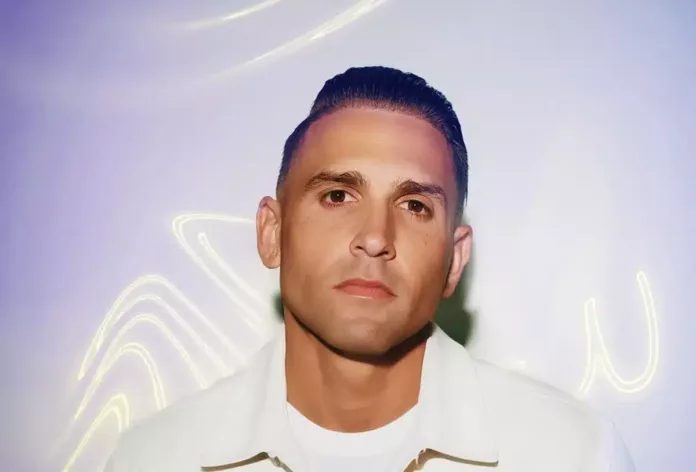
Róisín Murphy on the disco revival: “I’m back to snatch Dua Lipa and Jessie Ware’s wigs!”
Róisín Murphy’s new album couldn’t have come at a better time: the alt-popstar’s fifth record, ‘Róisín Machine’, is just the euphoric tonic we all need to get us through these increasingly troubling times (and as received the full five-star treatment from NME). A future disco classic full of joyous moments and nostalgic throwbacks to a comparatively carefree era, it’s one of the best and most uplifting records you’ll hear this year.
Here, the Irish icon tells NME all about ‘Róisín Machine’, how she’s stayed creative during lockdown, pre-pandemic gig memories and why she’s ready to reclaim her crown as Queen of the dancefloor.
You performed at Camden Roundhouse for BBC 6 Music Festival in March – less than two weeks before the national lockdown was put in place. Looking back, that gig must be pretty special?
“We were still in denial at the time. I saw myself on video the other day jumping into the crowd and as I was really getting in. I was taking stuff off, gloves and things, so I could actually touch everyone. I rolled around in God knows what, in the audience, and it bought a lump in my throat looking back at that. When will I be able to throw caution to the wind again?”
Did you find it easy to keep busy during lockdown?
“I’ve had plenty to focus on – I’ve got another album nearly finished, because I’ve been tinkering away at that for four or five years. It’s great that you can do that; it’s the modern way. I don’t have to call the rehab facilities all over the world to get the band back in the studio. I just take it as it comes and there’s so much good music flooding into my life. As long as I can tinker away and be creative and move things on, then I’m all right.”
You’ve put together several virtual performances over the past few months, including for [club night] Homoelectric Manchester and Queer Pride in Russia. Has it been a challenge to stay connected with your fans?
“I got connected to them in a different way – in a more intimate and stripped-down fashion. The Homoelectric and Queer Pride ones were full-on but, with the other ones, I was just dancing around and being myself with no make-up on. It sounds really boring, doesn’t it, but it was nice for me. It removes a certain mask. When you see me performing like that, you see it at a close up. It’s a different cup of tea, a cross between a film actress and a rock star.”
Do you think virtual shows are a strong enough alternative to live performances?
“[Virtual shows] won’t replace anything by any means, but for now – and I always like to embrace the new – there’s no better woman to embrace it and do things with it and play with the form. I’d like to put one together with the band… but I am really looking forward to getting back on stage with the band members. It’s a totally different kettle of fish.
Your new album has been a decade in the making – what’s the story behind it, and your relationship with the DJ Crooked Man (aka Parrot), who produced it?
“You’ve got to walk in and experience [the album] spaciously. The way that Parrot works is, he closes his eyes and he goes in. And by some kind of mad science, he manages to get that down on record. We go on a journey around a big building with all these different rooms and at the bottom there’s a cellar. There’s a rigorous, dark Sheffield throb coming from it that emanates up through all the other rooms. It’s the foundation of it, so everything’s got that.
“But in all these different rooms there’s different flavours. In the early stages of making it we were inspired by [legendary DJs] Larry Levan and Padlock, so taking disco and repurposing it and dubbing it. That’s what at the heart of this – it’s less egotistical or egomaniacal and more the Jamaican attitude of, ‘It’s never fucking finished – even when you put it on wax’.”
The record feels really timely considering it’s full of dancefloor disco anthems – but the clubs are still closed.
“I guess it does seem really right for now – even though the album was crystallised 10 years ago. I think it’s because it began as this revisionist journey that quite a few of us did around that time. If it had have come out then, it would have been in the same orbit as Hercules & Love Affair or Azari & III and this re-look at house, our culture, the music that got us into dance music in the first place and, ultimately, what we lost.
“It wouldn’t have ever been that house-y, though, because it’s more into the dubby disco and then it’s got the Sheffield darkness, by which you emerge out of the swell of the throb of what should be dark but it propels you through into euphoria.”
It feels like your most ‘pop’ record to date? Was that the intention?
“Pop certainly wasn’t part of the discussion, but there might have been points when we were writing [the track] ‘Murphy’s Law’ and thinking, ‘Is this all right? Are we fucking going a bit borderline here?’, because it’s so classic. We allowed ourselves to go there and put some very strong songs on it, but we didn’t have a pop mentality when making it. I think the best pop is counter-intuitive; where it’s born out of some other ingredients.”
The line “I feel my story is still untold” appears several times on the album – what do you mean by that?
“Every day I wake up, look in the mirror and I’m still fit. Every day is a miracle and a blessing and I think, Fuck, I’m still unfolding’. The longer it goes on, the stronger the whole narrative gets. It’s the best thing I can say about my life. And I think I’ll always feel that way.
“Lyrically, I think there’s more ambiguity on this record than my previous ones. With ‘Incapable’, for example, you don’t usually get girls singing about how they got away with it. It resonates on a personal level and then in my career – I’m unscathed; I’m not tarnished. It’s a case of ‘I’ve still got it, love – come and have a dance with your mum’.”
Why have you decided to call the record Róisín Machine’?
“I’m a soft machine; I have to be taken care of to a degree. But I’ve had an incredible output in the last few years – visual and audio. And, as a title, it just works.”
What’s the concept behind its distinctive artwork?
“It comes out of the same space as the music, from what I remember of the big clashes of cultures, genres and classes and the scene that I was involved in. You had the electro, pop-punk, glam and the hip-hop kids; all these sorts of people mashing up together.
“The first time I started to push myself and be a bit of a tramp was when I saw the Cosey Fanni Tutti exhibition a couple of years ago in London. She had these beautiful huge format photos that she’d taken of herself. I stood in front of these incredible images where she’s all tied up and I thought to myself, ‘Where’s it gone, this? There’s nobody that doesn’t give a fuck any more’.
“She’s beautiful but not pornographic; she’s there and in your face – her sexuality, her subversion. In a similar way, Siouxsie Sioux inspired me, looking at her in her day and thinking, ‘Where’s that gone? Who’s got balls like that today?’ Not many, that’s for sure.”
What do you think of the disco revival that’s been happening this year, with the new albums from Dua Lipa and Jessie Ware?
“Lovely, good for them – but I’m back to snatch their wigs! To me, disco can be anything. It is a disco record I’ve made, but my idea of it is very broad. I can easily think of Depeche Mode and Sylvester as disco.”
You’ve just announced some live shows for next year – what do you think the energy will be like?
“Five minutes into a gig with me, love, and you’re not even gonna remember the pandemic.”
– ‘Róisín Machine’ is out October 2 on Skint Records/BMG




